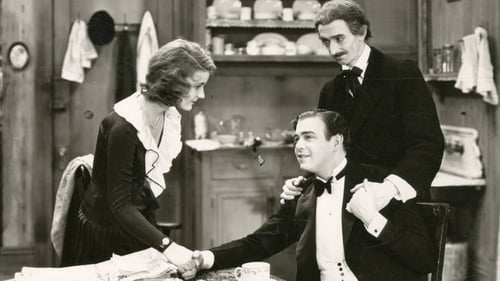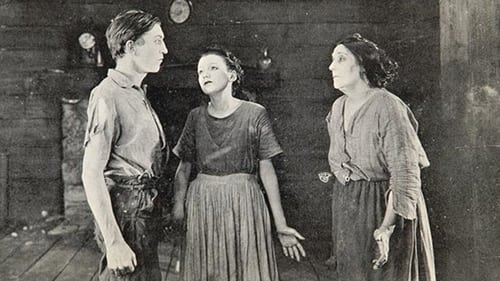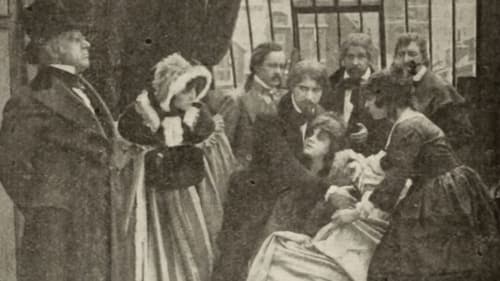
Evangelist
Young Irish lad Tommy O'Day lives in a poor section of New York's Lower East Side, and is blessed with a beautiful singing voice. After an argument with his father, who accuses him of stealing the family's life savings, Tommy leaves home and gets a job singing in a cabaret. He is successful and soon lands the lead in a Broadway revue. On opening night, just as he is about to go on stage, he receives word that his mother, who he has not seen since he left home, is dying and wants to see him.

Juan Pérez, prior of La Rábida
Everyone knows what happened after he "discovered" America, but in this film we learn about Columbus' multi-year struggle to secure funding for the journey. Prior explorers journey's to the North American continent also get a nod in this story.

John Hardin
Essie, a mountain girl, moves in with a family of neighboring bootleggers when her father, also a bootlegger, is killed by federal agents. She falls in love with Tom, one of the family's brothers, but another brother, the violent and brutal Lem, decides he wants her for himself, and beats Tom badly. What the girl doesn't know is that it wasn't the feds who killed her father--it was Lem. Complications ensue.

Uncle Ned
A group of New York society folk on a yachting excursion are forced to put into a New England fishing village for repairs. The engaged couple Reggie and Patricia are taken with the quaint town and its quainter ways, but also with two locals, Betty Alden and her brother John. Patricia begins to fall for John while her fiancé takes a seemingly unworthy liking to Betty. The new infatuations lead to disharmony.

Johnson Carter
William Carter, a young Virginian in Paris, becomes enchanted with music hall dancer Fanchon La Fare. After William reluctantly returns to America, Fanchon follows him, and when she is threatened with deportation because of an irregularity in her passport, William marries her. The marriage causes consternation in the upright Carter family, which is compounded when Fanchon performs one of her dances at a church benefit. At the conclusion of her dance, Fanchon sees a stranger in the audience and faints. Later, the same man appears at the Carter residence and demands to see her. Leigh Carter, William's younger brother, becomes angered and shoots the man. At the trial, Fanchon confesses that the stranger was her estranged husband whom she had been forced to marry when she was but a child. The crime thus clarified, Leigh is freed, and Fanchon, who had been expelled earlier from the Carter house, is welcomed back by her husband and his family. (Courtesy TCM)

Brother Andrew
A farmer in Illinois played by Lionel Barrymore is recruited by Abraham Lincoln to pose as a copperhead during the Civil War.

Society melodrama about a wealthy father who purchases an island to prove to his son that communism won't work.

Darkie Joe
Science fiction serial.

Durandin
Mimi, an orphan, is taken in by a drunken innkeeper and becomes a domestic. She meets Rudolphe, scion of a well-to-do family, who rescues her from the unwanted advances of a drunken hotel guest. They fall madly in love, but Rudolphe's uncle, M. Durandin, wants Rudolphe to marry a family friend, Madame de Rouvre, and writes Mimi a letter, telling her that she is ruining Rudolphe's life. Musette and Marcel, friends of Mimi, also try to break up the romance by introducing Mimi to other men, and Rudolphe becomes jealous and leaves her. Brokenhearted, Mimi declines in health and eventually throws herself into the river but is rescued and taken to the hospital. Realizing it is only a matter of time before she dies, she drags herself back to the room where she and Rudolphe were happiest. Rudolphe is there and she dies knowing that he loves her.

Dr. Appledan
1916 silent drama directed by Maurice Tourneur

Innkeeper
Robin Hood is a 1912 film made by Eclair Studios when it and many other early film studios in America's first motion picture industry were based in Fort Lee, New Jersey at the beginning of the 20th century. The movie's costumes feature enormous versions of the familiar hats of Robin and his merry men, and uses the unusual effect of momentarily superimposing images different animals over each character to emphasize their good or evil qualities. The film was directed by Étienne Arnaud and Herbert Blaché, and written by Eustace Hale Ball. A restored copy of the 30-minute film exists and was exhibited in 2006 at the Museum of Modern Art in New York City.








